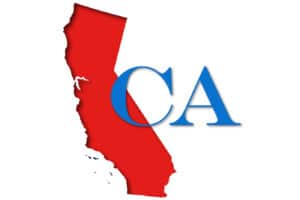News

Center for American Progress Issues Report-on-Rehab to Rent
The Center for American Progress has issued a new report titled “Rehab-to-Rent Can Help Hard-Hit Communities and Our Economy: What to Consider When Converting Vacant Foreclosed Homes into Affordable, Energy Efficient Rentals.”

Budget Preview: President Pushes to Fund Rental Housing Trust Fund
In a preview of the Administration’s FY-2013 Budget (to be released on February 13), the Obama Administration has announced as part of its “Plan to Help Responsible Homeowners and Heal the Housing Market” that his budget will call for $1 billion to capitalize the federal rental housing trust fund.

CTCAC Proposes Changes to Allocation Process
California’s Tax Credit Allocation Committee yesterday released two regulation changes proposed for Committee consideration. CTCAC staff will conduct a public hearing on February 22 in Sacramento, CA.

Rep. Levin to Reintroduce Taxation on Carried Interest Measure
House Ways and Means Committee Ranking Member Sander Levin (D-Mich) has indicated that he will reintroduce legislation to tax carried interest compensation at the same ordinary income tax rates.

California Legislature Introduces Companion Bill on Remaining RDA Funds
As of February 1, 2012, California’s redevelopment agencies were permanently disbanded under the direction of Assembly Bill 1X26. However, California’s State Assembly last week introduced A.B. 1585, a proposal that preserves redevelopment agencies’ unencumbered Low/Mod-Income Housing funds, which local communities use to fund affordable housing development.

Proposed Bill Would Repeal All Energy Tax Credits
On February 2, U.S. Senators Jim DeMint (R-SC) and Mike Lee (R-UT) introduced S. 2064, the Energy Freedom and Economic Prosperity Act (EFEPA), which would repeal all energy specific tax credits.

House Sub-Committee Approves Voucher Reform Legislation
On Tuesday, February 7, the House Financial Services Subcommittee on Insurance, Housing and Community Opportunity approved the Affordable Housing and Self-Sufficiency Improvement Act (AHISSA) (currently unnumbered) by a voice vote. AHISSA is the most recent iteration of the Section Eight Savings Act (SESA) and the Section Eight Voucher Reform Act (SEVRA).

FHFA Announces First Step in REO to Rental Initiative
The Federal Housing Finance Agency (FHFA) recently announced the first step of a Real-Estate Owned (REO) Initiative targeted to hardest-hit metropolitan areas, which was originally announced in August 2011. This initiative will allow eligible investors to purchase pools of foreclosed properties under the stipulation that the purchased properties must be rented for a specified number of years.

Transition Funding for Displaced Ike, Gustav Households
The Disaster Housing Assistance Program Ike (DHAP- Ike) recently expired with 3,500 households still enrolled in the program. To provide additional time for families to transition, HUD recently announced that it would provide $28 million to convert eligible families that were displaced by Hurricanes Ike and Gustav in 2008 to the Housing Choice Voucher (HCV) program.

HUD Report Shows Redistribution Effects of ACS in CDBG
HUD’s Office of Policy Development and Research (PDR) has published a new report that examines redistribution of 2012 CDBG Program funding as a result of the program now relying on the American Community Survey (ACS) data and 2012 Census population counts.

Nebraska Proposes Historic Tax Credit Legislation
Nebraska State Senator Abbie Cornett (R-District 45) recently introduced the Historic Property Restoration and Reuse Act, L.B. 888, which aims to provide a 25 percent tax credit for for-profit developers and a 30 percent tax credit for nonprofit developers that choose to rehabilitate or restore federal, state, or locally designated historic properties.

HUD Extends Equal Access Rules to Include Sexual Orientation and Gender Identity
HUD has issued a final policy stating that eligibility for its programs has been extended to protect individuals from housing discrimination based on sexual orientation.